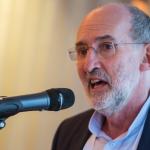In a new paper in
Critical Review focusing on uncertainty and decision science, we report the conclusions from a group of European scientists with wide-ranging backgrounds in computer science, anthropology, sociology, psychology, physics, investment, foresight and policy-making, as well as economics, who asked two questions:
- What do we know about decision-making under Knightian or Deep uncertainty?
- Where can we go from here?
First, the problem of developing a useful approach to decision making under uncertainty is not limited to economics. The challenge is equally great within other influential decision sciences, including psychology. Not only does both economic and psychological research into decision-making largely ignore uncertainty and complexity, but they also take no account of learned and evolved human capabilities for managing them rather successfully. Our paper elaborates this critique, exemplifies some work trying to correct the balance, and sets out a manifesto for future research priorities.
Herbert Simon suggested mainstream theorists have postponed engagement with reality, while George Soros suggested these theories are based on an “outside” and not an “inside” view. Elaborating in this paper, we describe the theories as idealistic and idealised, or in other words, phantastic. How agents behave has too long been modelled not from within the real contexts in which they find themselves, but instead imposed from an external position founded on over-simplistic and idealized norms. Such agents are effectively omniscient. They are given no scope either to suffer the problem of how to interpret available information when evidence is conflicting or to have doubts as to which model of the way the world works best applies. The agents themselves have also been conceived in a very limited way, ignoring many aspects of evolved human capacities. In effect, agents have been treated as very limited, inorganic, calculating machines. This is precisely why the conclusions derived from these theories are brittle and break down in contexts of deep uncertainty.
Our paper proposes new opportunities, new frameworks, and new agendas. We suggest that research investment should prioritise four principles:
- The study of “in vivo” decision-making seeking to understand processes in ontologically uncertain contexts that are relevant to policy making. This implies a focus on non-routine, long-term, complex decisions made in teams.
- A wider range of relevant human capacities available to the agents who make decisions, such as feeling, imagining, interpreting, co-operating, and imitating, not just calculating.
- Studies that go beyond one-shot decisions to examine processes of managing decisions over time. These should explore the influence of the social and psychological processes that enable decision makers to gain support for decisions made under uncertainty, when psychological and social pressures may make it difficult both to take long-term decisions at all or to monitor outcomes and learn from experience.
- The wider decision-making context, and particularly ways decisions are embedded in social practices and how informal institutional processes shape decisions. How are multiple actors and their decisions interdependent, and what facilitating tropes and images do actors bring to bear in their practical engagements with complex circumstances?
Finally, we argue that future research needs to be interdisciplinary. It must involve collaboration across the social and brain sciences as well as with engineers and computer scientists. As such, we highlight a few ongoing research projects that we think exemplify the promise from such efforts. The first example, describing the application of the fast-and-frugal tree method to medical decision-making and central bank regulation, shows the advantage of considering the context in which decisions are made. The second example describes the application of conviction narrative theory to efforts to forecast and nowcast the US economy. It illustrates what might be accomplished by operationalizing a theory designed for a context of ontological uncertainty populated by more broadly conceived human social actors. The third example, analyzing “digital traces” to explore the relationship between individuals within larger social units, shows the potential benefit of re-examining traditional quantitative/qualitative research boundaries, while the fourth example puts quantitative efforts to anticipate the uncertain future alongside those used in scenario development.
Uncertainty, Decision Science, and Policy Making: A Manifesto for a Research Agenda
by David Tuckett, Antoine Mandel, Diana Mangalagiu, Allen Abramson, Jochen Hinkel, Konstantinos Katsikopoulos, Alan Kirman, Thierry Malleret, Igor Mozetic, Paul Ormerod, Robert Elliott Smith, Tommaso Venturini and Angela Wilkinson.



